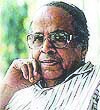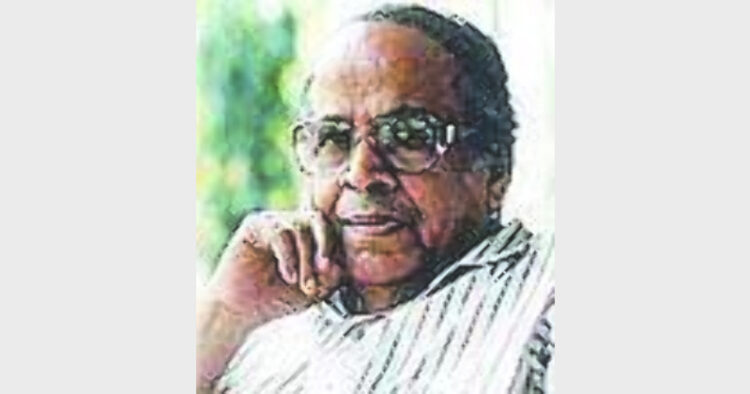Dr Jay Dubashi
?
 NDIA is making headlines once again in the world press, but not for anything India or Indians have done. First, British prime minister David Cameron paid a visit, his second in two years, and though he came here on business – Business with Capital B – he found time to pay a visit to Jallianwala Bagh to pay homage to hundreds of Indians killed in cold blood there by a mad British Commander way back in 1919, almost a hundred years ago. But for the unexpected visit, nobody would have taken notice of Cameron’s visit, except the usual mad-for-foreign crowd that go mad at such things.
NDIA is making headlines once again in the world press, but not for anything India or Indians have done. First, British prime minister David Cameron paid a visit, his second in two years, and though he came here on business – Business with Capital B – he found time to pay a visit to Jallianwala Bagh to pay homage to hundreds of Indians killed in cold blood there by a mad British Commander way back in 1919, almost a hundred years ago. But for the unexpected visit, nobody would have taken notice of Cameron’s visit, except the usual mad-for-foreign crowd that go mad at such things.
The second big event of the week was the triumph, if you can call it that, of India and Indians at the presentation of Oscars in Hollywood. A film, Life of Pi, in which Indian actors, including a young boy, feature prominently, received three awards, including one for director Ang Lee, who is not an Indian but a citizen of Taiwan. Ang Lee thanked everyone profusely and ended his speech with a graceful namaste, as unusual ending on the part of a Chinese. This is the second time a film with an Indian them and a large number of Indian actors have figured prominently in what happens to be an Indian story in recent Oscar awards.
Let me take Cameron first. Did he have something more in mind when he made a trip to Jallianwala from Delhi? Was he angling for Sikh votes back in his country where the Sikhs figure prominently in certain areas? It doesn’t seem likely. Actually, Cameron didn’t really offer an apology for the massacre at the hands of British troops – all he did, going by the photographs, is to stand stiffly before the monument in silence, like a Guards officer outside Buckingham Palace in London – and later issued a statement of regret, a century too late. After all, it was his own army, or his country’s army, that had been responsible for the unprovoked massacre in cold blood, though for the British it may have been one of those imperial incidents they have learnt to take in their stride.
But the shooting was not done by British soldiers. There was not a single British officer in sight, except Brig-General R.E.H. Dyer, who was in charge and who ordered the shooting. He was very much an Indian himself, born and bred in India, admittedly of British parents, who had spent his entire life in India—in a military career that had brought him so far. His family belonged to the famous Dyers of Murree, now in Pakistan, who had set-up a brewery in Solan, near Simla, where they brewed the famous Dyer-Meakin beer. Dyer had gone to school in Simla, knew Urdu very well, but, for some reason, was not a happy man. What provoked him to such a step is not known. Dyer died in England, a rich man, after collecting a lot of money from his admirers, most of them MPs, who had no regrets whatsoever about their friend’s role in the ghastly atrocity.
Actually, the story is not as simple as it is made out to be. You have to go back sixty years to 1857 when the story began to take root. The uprising of 1857 shook up the British establishment, for it had almost cost them their empire. For the first time after taking over the reins from East India Company, they had to face a widespread rebellion, in which Hindus and Muslims came together to put up a fight against them. This was, as they say, a wake-up call, and they had vowed never again to fall into the trap. They never really trusted Indians after 1857 and did everything possible to keep Hindus and Muslims apart. Thus was born the Indian National Congress, an essentially Indo-Anglian operation, or rather a Hindu-Anglian operation, with most of ropes in the hands of the Britishers. A few years later, came the Muslim League, which, together with the Congress, set the tone for British imperial policy in the sub-continent.
The Britishers, especially uneducated army men like Dyer, saw a mutineer in every Indian and this panic reaction to any large-scale demonstration by Indians always set off bells ringing in army messes, and later in the government. Dyer must have seen red on that Baisakhi day in Amritsar and gave an order to shoot at sight. This is what they were to !do again and again whenever they were confronted by large gatherings of Indians on the war-path.
I have a feeling that the British never really believed in Gandhi’s non-violence and never really understood or tried to understand his truth and non-violence claptrap. At least, the army did not. They were always on the alert and ready to strike at the shortest notice, and strike hard until it hurt. They also used British forces – not Indian soldiers – whenever they felt things were going to far, as, for instance, during the Quit India movement.
I was a student in Pune at the time, and we were always watched by British army men and intelligence agencies, not Indian police or Indian army men, at almost every step. We had taken out a procession the day after Gandhiji and others were arrested and found ourselves suddenly surrounded by rifle-toting red-faced British soldiers, whose faces could be seen clearly under their khaki helmets. At a road junction, not far from Lokmanya Tilak’s house and office, we were halted by a posse of these soldiers, a full company of British troops with fingers on the triggers. One step forward, we were told on the loudspeaker and they would fire without further notice, that is, shoot at us, or may be shoot us, as they had done in Jallianwala Bagh less than 25 years earlier. I have a feeling that they meant what they said, for a soldier in panic is worse than a tiger at bay.
We have been led to believe that it was Gandhiji’s non-violent movement that brought us freedom, and, but for him, we would still be chains, I don’t believe it at all. I have spoken to Britishers, including men who had held high posts in India and England and were close to the British establishment, and they always had a glint in the eye whenever they spoke about these matters. What really shook the British were people like Savarkar and Bhagat Singh, men who had seen through the British game in India, and never trusted them. They were treated brutally. Bhagat Singh was hanged and they would have hanged Savarkar too but he was one step away from any assassination, and could not be nailed. They tried everything in their bag of tricks to eliminate him but the man was too much for them. They hated his guts, and the guts of people like him, but could do nothing. For Gandhi, they had nothing but contempt, though they kept him in good humour for other reasons.
After Jallianwala, the British really stepped up their “Divide and Rule” tactics and encouraged men like Jinnah at every step. The transformation of Jinnah from a nationalist into a communalist was their biggest achievement, which ultimately weakened Hindus and led to the Partition of India.It was the British who created Jinnah and he did precisely what they wanted him to do. For they had made up their minds to split up India before handing if over to the Hindus, whom they feared, and who, they believed would use their strength in a massive industrialised India to rise again in the world and pose a threat to the West.
Mohammed Ali Jinnah was the creation of the British, along with the so-called Macaulay’s children – actually Macaulay’s intellectual inheritors – the English – speaking westernised Indian hordes, who were neither Hindus nor Westerners but somewhere in between, like all inheritors, led by the likes of Jawaharlal Nehru, who was as much a creation of the British as Jinnah. Between these two, India would be paralysed for ever, so the British believed, and they were not far wrong.
Jinnah Partitioned India physically, while Nehru did so politically and culturally, until the Hindus realised they were being fooled by this “secular” crowd, which was nothing but a fifth column left behind by the west. Now Nehruism is being elevated into an “Idea of India” by some stupid men residing in the west, who, too, like Nehru & Co., despise Hindus and would rather be bootlickers of West than genuine self-respecting children of the soil.
I have a feeling that Gandhiji must have realised that he and his non-violence must have made him play into the hands of the British, but by then, it was too late, No wonder, he died a broken man, long before he was killed.
I was in England at the time of our Independence, some of us had been invited by India office – the office of the secretary of state for India, the ultimate seat of British power in India – on the eve of Independence to have tea with the secretary of state, a man called Lord Pethick-Lawrence. I asked him how he felt.
“Do you really want an answer?” he asked.
For man who had just lost an empire, he seemed quite at peace with himself, though like other Britishers, he did not show it!
?













Comments